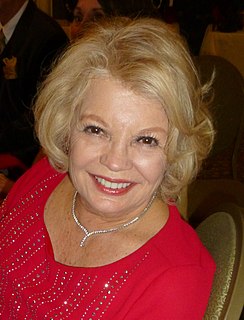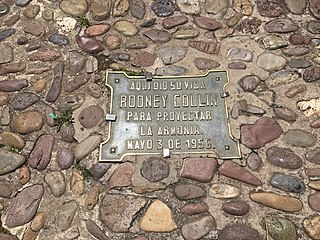A Quote by Albert Einstein
In every true searcher of Nature there is a kind of religious reverence, for he finds it impossible to imagine that he is the first to have thought out the exceedingly delicate threads that connect his perceptions
Related Quotes
I think our lives are connected by threads. We're weaving our own quilts as we go along and it has been my experience that there are so many threads that connect people. Invisible threads, strong threads, sparkling threads, but I think there is so much interconnectivity between people and I acknowledge that and I see it all the time. I think some of that is divine.
[T]he central problem of government is a religious one; and anyone who assumes that he can form his political beliefs without consulting his ethics, which have their basis in religious conviction, is deceiving himself either about the true nature of government or his moral responsibility for his actions
The world is so unhappy because it is ignorant of the true Self. Man’s real nature is happiness. Happiness is inborn in the true Self. Man’s search for happiness is an unconscious search for his true Self. The true Self is imperishable; therefore, when a man finds it, he finds a happiness which does not come to an end.
Let no one imagine that he will lose anything of human dignity by this voluntary sell-out of his all to his God. He does not by this degrade himself as a man; rather he finds his right place of high honor as one made in the image of his Creator. His deep disgrace lay in his moral derangement, his unnatural usurpation of the place of God. His honor will be proved by restoring again that stolen throne. In exalting God over all, he finds his own highest honor upheld.
There comes a moment during which almost every girl or boy falls into melancholy; they are tormented by a vague inquietude which rests on everything and finds nothing to calm it. They seek solitude; they weep; the silence to be found in cloister attracts them: the image of peace that seems to reign in religious houses seduces them. They mistake the first manifestations of a developing sexual nature for the voice of God calling them to Himself; and it is precisely when nature is inciting them that they embrace a fashion of life contrary to nature's wish.
No thought can encapsulate the vastness of the totality. Reality is a unified whole, but thought cuts it up into fragments. Every thought implies a perspective, and every perspective, by its very nature, implies limitation, which ultimately means that it is not true, at least not absolutely. Only the whole is true, but the whole cannot be spoken or thought.
A Godly leader ... finds strength by realizing his weakness
finds authority by being under authority
finds direction by laying down his plans
finds vision by seeing the needs of others
finds credibility by being an example
finds loyalty by expressing compassion
finds honor by being faithful
finds greatness by being a servant
Every religious tradition on which we draw has a reverence for life. We are a part of an intricate web of life. Every tradition on which we draw teaches that the ultimate expression of our spirituality is our action. Deep spirituality leads to action in the world. A deep reverence for life, love of nature's complex beauty and sense of intimate connection with the cosmos leads inevitably to a commitment to work for environmental and social justice.
To be a religions man and to pray are really one and the same thing. To join in the thought of God with every thought of any importance that occurs to us ; in all our admiration of external nature, to regard it as the work of His wisdom ; to take counsel with God about all our plans, that we may be able to carry them out in His name ; and even in our most mirthful hours to remember His all-seeing eye ; this is the prayer without ceasing to which we are called, and which is really the essence of true religion.
What makes a free thinker is not his beliefs, but the way in which he holds them. If he holds them because his elders told him they were true when he was young, or if he holds them because if he did not he would be unhappy, his thought is not free; but if he holds them because, after careful thought, he finds a balance in their favor, then his thought is free, however odd his conclusions may seem.




































